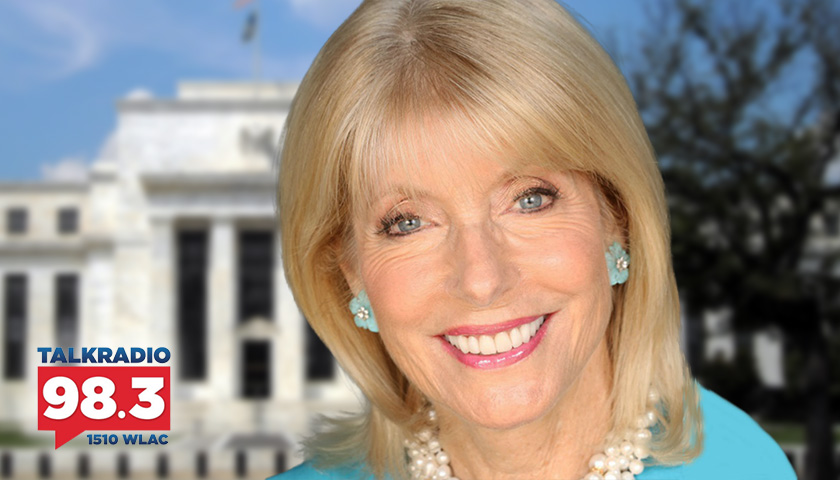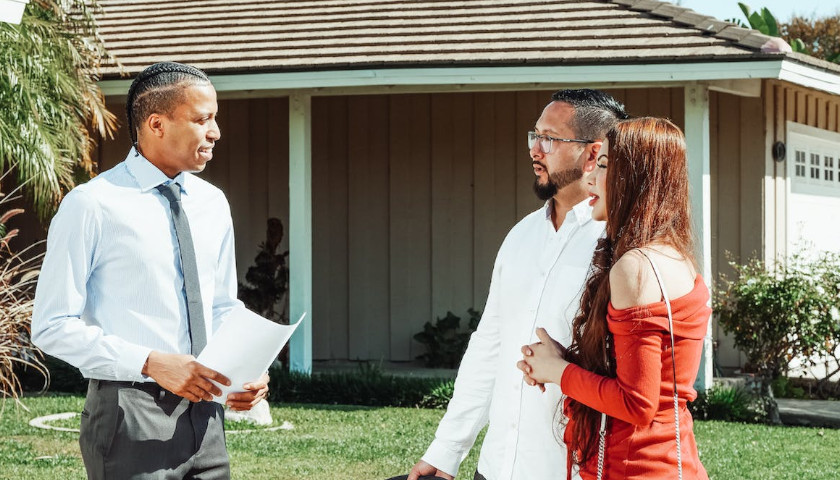Live from Music Row Thursday morning on The Tennessee Star Report with Michael Patrick Leahy – broadcast on Nashville’s Talk Radio 98.3 and 1510 WLAC weekdays from 5:00 a.m. to 8:00 a.m. – host Leahy welcomed Fox Business contributor and Wall Street expert Liz Peek on the newsmaker line to comment upon current inflation levels and what the end of the 2022 year will look like for taxpayers and consumers.
Leahy: On the newsmaker line, our very good friend, Fox News contributor, specialist, and expert in the area of financial markets, Liz Peek. Good morning, Liz.
Peek: Good morning. Thanks for having me.
Leahy: Liz, I’m always delighted to have you on. However, let us just say that you don’t necessarily bring good news to us. (Laughter) What is going on with inflation, the economy? It looks like it’s just going straight down the tubes.
Peek: It’s all because the government basically decided to put untold and unprecedented amounts of money into the economy at a time when the economy was rebounding very sharply from the COVID-induced downturn.
It was too much. It went on too long, too much spending. And when you look back at the Democrat bill, the American Rescue Plan, which was passed a little more than a year ago, $1.9 trillion on top of $5 trillion which had already been spent by the federal government to fight the effects of COVID, it was a ludicrous idea.
And remember, only Democrats voted for it. And of course, their charge was that Republicans were basically being stingy and they just didn’t want to give Joe Biden a win.
No, Republicans understood that this was going to be sort of just one more weight on the seesaw that was going to tip us into an overheated economy, which is exactly what it did.
What’s really extraordinary is that Democrats followed up the American Rescue Plan with a proposal, the Build Back Better thing, which every credible analysis showed would have been another $3 or $4 trillion spent on an already overheated economy.
The whole thing really was just so terribly planned, terribly thought out. And I have to say, we all know that Joe Biden’s approval ratings really headed south during the Afghanistan mess.
They did such a bad job on that bad messaging and horrifying decision-making. But really, I think also his touring the country and telling people that spending another 3-to-$5 trillion and Build Back Better was going to bring inflation down.
I think that was sort of the pivotal lie that all of America woke up to and kind of looked at it and said, no, that can’t possibly be right.
And of course, many economists, many experts in the field have come out and said it would have been a catastrophe. It is kind of interesting.
I think the president’s credibility really just cratered at that moment because even people with no background in finance saw what was happening. They knew too much money was going in.
They knew the Fed was inert and didn’t move fast enough, and the combination of those two things. And now there’s no question supply chains, the war in Ukraine, all that has added fuel to the fire. But believe me, the fire was burning very nicely beforehand.
Leahy: But wait, there’s more! We have a story up at The Star News Network right now. thestarnewsnetwork.com headline: “Biden White House Report Says Energy Taxes Are Needed for Green Transition.”
The White House said Americans should pay higher taxes to ensure a rapid green transition away from fossil fuels. This was a report issued last week by the Council of Economic Advisers. Your thoughts, Liz Peek?
Peek: First of all, let’s separate two things here. One, renewable energy is more expensive. You don’t hear much about that because they are already enormous tax handouts to the providers and suppliers of materials that lead to solar installments and so forth.
We’re already paying higher electricity prices. If you look at what Californians, for example, are paying for electricity, it’s way above the national average. It’s not because they’re far west.
It’s because their state officials have demanded enormous reliance on renewables, which de facto are more expensive. So right away, transferring from cheap natural gas, even cheaper coal, but we’ve done most of that, to renewables is going to cost Americans more.
But yes, if you really want to accelerate the process and make it even more painful, put taxes in place. That makes no sense. But it is amazing to me that on climate, there is no sense.
You have zealots in charge of climate policy and they brook no rationalization of what they’re doing. It’s a conversation you actually cannot have with people.
Leahy: It’s now April 19, 2022. How is this year going to end up, Liz? It looks like it’s all going bad. (Chuckles)
Peek: It’s not going great. Obviously the focus now is on the Federal Reserve. And the question is, can they temper demand? This is, again, a demand-driven problem in the sense that people have too much money.
How can that be a bad thing? It really isn’t. But when you have too much money chasing too few goods, then it translates into inflation, and then it gets embedded.
The problem I think that policymakers have now is it’s really embedded. Everybody’s asking for a pay hike. Why? Because the cost of the grocery store is through the roof. I checked out of the grocery store yesterday.
It took forever because everyone in front of me was saying, wait, that can’t be. Eight bagels for $12? And people questioning the prices. Well, guess what? The prices are pretty stunning.
So the Fed now is on the hook to slow it down, raise interest rates to the point where demand is squashed enough to put inflation back where it was, which, by the way, is not going to two percent anytime soon, in my view. And that’s the so-called soft landing.
The idea that the Fed can manipulate this $20 trillion economy with fluidity and not make a mistake and overcorrect, is extremely wishful thinking.
That is obviously the big issue right now. The economy underneath is pretty strong. People have jobs and they are sitting on a lot of extra savings still, although that’s been coming down.
The economy is not in terrible shape. But as the interest rates ratchet higher it’s going to be a question of, can they do that and not just completely suppress demand. I don’t know.
The odds of recession now are being put around 35 percent to 40 percent, not this year, but next year. And guess what? I don’t have the answer to that, but it’s certainly not going to be an easy time and I think the markets are going to respond badly.
Listen to the interview:
– – –
Tune in weekdays from 5:00 – 8:00 a.m. to The Tennessee Star Report with Michael Patrick Leahy on Talk Radio 98.3 FM WLAC 1510. Listen online at iHeart Radio.





